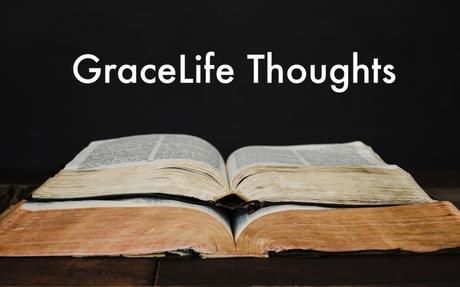Grace Thoughts
GraceLife Thoughts – Questions about the Canon (Part 2)

First, a little history about how the Church has dealt with deuterocanonical books. Jesus and His Apostles did not quote from deuterocanonical books or call them “scripture.” In 2 Timothy, the Apostle Paul mentioned Jannes and Jambres resisting Moses, but did not quote it as Scripture or as coming from the Book of Jannes and Jambre. Jude, the half brother of Jesus, mentioned Enoch’s prophecy, but didn’t quote it as Scripture or mention the Book of Enoch. We must look to those Christians who came after the Apostles to see what the early Church believed about deuterocanonical books.
1st and 2nd century Christians were familiar with the many apocryphal books available at the time. In addition to the ones already mentioned, here are some of the other books early believers considered:
1 Enoch, 2 Enoch, 3 Enoch, 2 Baruch, 3 Baruch, 4 Baruch, 3 Esdras, 4 Esdras, 5 Ezra, 6 Ezra, 3 Maccabees, 4 Maccabees, 5 Maccabees, 6 Maccabees, 7 Maccabees, 8 Maccabees, Adam Octipartite, Adjuration of Elijah, Apocalypse of Abraham, Apocalypse of Adam, Apocalypse of Elijah, Apocalypse of Ezekiel, Apocalypse of Sedrach, Apocalypse of the Seven Heavens, Apocalypse of Zephaniah, Apocryphon of Ezekiel, Apocryphon of Jacob and Joseph, Apocryphon of Melchizedek, Apocryphon of the Ten Tribes, Ascension of Moses, Assumption of Moses, Book of Assaf, Book of Noah, Cave of Treasures, Coptic Apocryphon of Jeremiah, Eldad and Modad, Enochic Book of Giants, Epistle of Rehoboam, Greek Apocalypse of Daniel, Greek Apocalypse of Ezra, History of Joseph, History of the Rechabites, Jannes and Jambres, Joseph and Aseneth, Jubilees, Ladder of Jacob, Letter of Aristeas, Life of Adam and Eve, Lives of the Prophets, Manual of Discipline, Martyrdom and Ascension of Isaiah, Odes of Solomon, Prayer of Jacob, Prayer of Joseph, Psalms of Solomon, Questions of Ezra, Revelation of Ezra, Sibylline Oracles, Signs of the Judgement, Sword of Moses, Testament of Abraham, Testament of Adam, Testament of Isaac, Testament of Jacob, Testament of Job, Testament of Moses, Testament of Solomon, Testament of the Twelve Patriarchs, Treatise of Shem, Vision of Ezra, Visions of Heaven and Hell, and Words of Gad the Seer.
It’s important to note that just because an early Christian writer quoted from an apocryphal book does not mean they believed it was Holy Scripture – and even if they did, that doesn’t make a book “Scripture.” Only the direct “inspiration” of the Holy Spirit makes any writing Scripture. That’s what we’re considering. However, it is helpful to know what early Christian evangelists, apologists, pastors, and teachers thought about any writing purported to be “Scripture.”
Clement of Rome quoted some words from the Book of Wisdom and Judith, but used the quotes as examples to support a point, not as Scripture. The same with Polycarp and Irenaeus. Polycarp quoted from Tobit and Irenaeus from Bel and the Dragon, Susanna, and Baruch as examples to support theological arguments. Christians have quoted from other people’s writings for centuries without meaning for them to be taken as Holy Scripture.
Scripture taken from the New King James Version®. Copyright © 1982 by Thomas Nelson. Used by permission. All rights reserved.
GraceLife © 1990-2024


Published by gracelifethoughts
Founder & Director of GraceLife Ministries View all posts by gracelifethoughts
